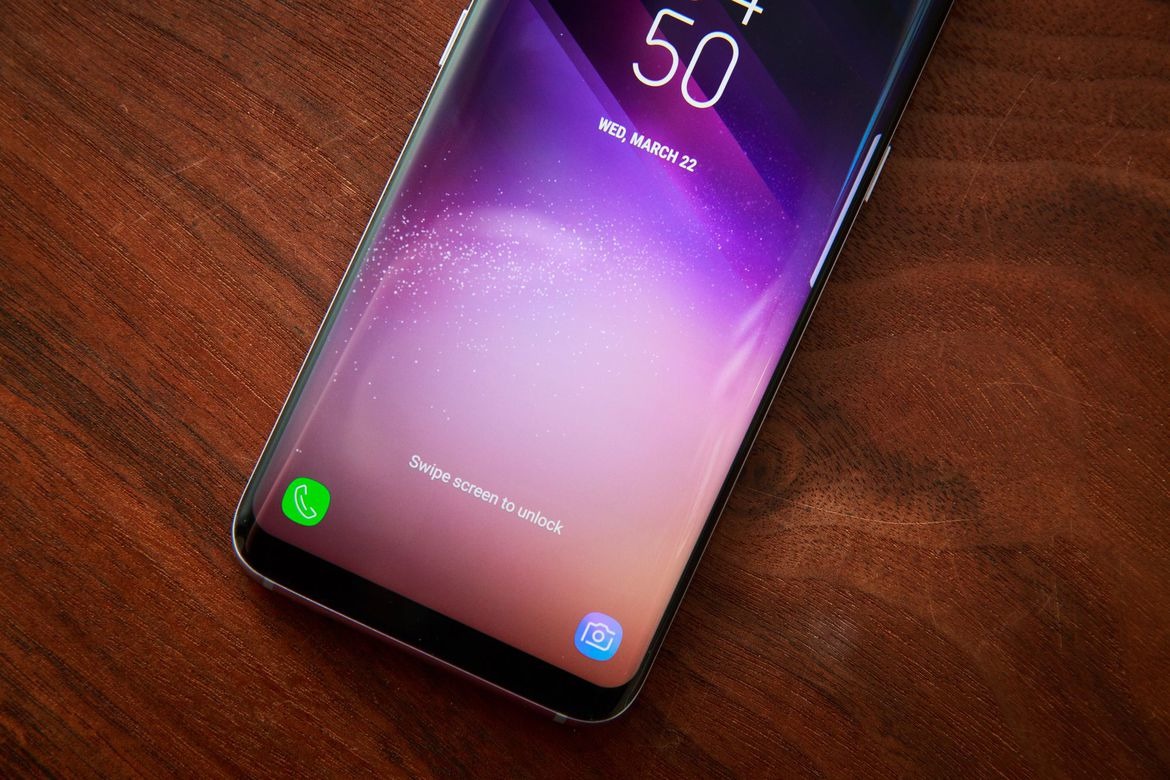Apple rival Samsung Electronics has posted profits of $12.65 billion for the June quarter, its highest quarterly revenues ever — also eclipsing predictions for Apple's performance in the period, though the situation is likely to reverse once this fall's iPhones ship.
Samsung's profits were up 72.7 percent, while revenues rose 19.8 percent to $54.72 billion, according to Reuters. The South Korean company said its success can be credited largely to memory chip sales, including DRAM and NAND modules.
In fact its mobile division saw a 4.7 percent dip in profits, though sales of the Galaxy S8 and S8+ were reportedly 15 percent higher than for the S7 series.
In comparison, Apple's forecasts for the June quarter call for profits around $10.54 billion. The period is typically a slower one for the company though, with iPhone sales ebbing in anticipation of new models, and few other product launches filling in the gap.
This September Apple is expected to unveil three new iPhones, led by the "iPhone 8" — typically rumored to have an edge-to-edge, 5.8-inch OLED display manufactured by Samsung. The latter firm has near total control of the smartphone OLED market, as companies like LG and Foxconn's Sharp are only now beginning to step up efforts.
The other two models, the "iPhone 7s" and "7s Plus," are rumored to have 4.7- and 5.5-inch LCDs. They may share some "8" features, such as wireless charging, but lack others like 3D facial recognition and/or a rear-facing laser for autofocus and augmented reality.
 Roger Fingas
Roger Fingas








 Charles Martin
Charles Martin
 Malcolm Owen
Malcolm Owen
 William Gallagher
William Gallagher

 Christine McKee
Christine McKee
 Wesley Hilliard
Wesley Hilliard

 Andrew Orr
Andrew Orr








30 Comments
Galaxy S8 might be selling better than S7 but the price has gone down since released so may have hit profit margins. Will be interesting to see which new iPhone has highest margins. Given i8 will probably be limited supply, it may be priced artificially high with highest margins. If new i7s have tighter margins and sell much higher than i8, could impact Apple profits after first quart of release too. And if upcoming Galaxy Note 8 is priced closer to new i7s than i8, could hurt Apple overall, at least in terms of drawing new people into iPhone. My guess is Samsung will initially price Note 8 high then plan to drop price closer to new i7s when released.
Does Apple even have a true rival? Especially if we are considering smartphones that cost more than $400? I read that the reason why Samsung's mobile profits dropped even though sales of the S8/S8+ were 15% higher than the S7/S7+ last year is because the cost of components is rising. (Meaning that rising profits of Samsung Components were somewhat at the expense of Samsung Mobile.) So Samsung Mobile is getting a smaller profit margin from their cheaper phones that they sell in huge numbers, which eats into the profits that they get from their more expensive phones. They also seem to be selling fewer cheaper phones overall as more and more of that market goes to local OEMs in China and India. I would imagine that Nokia launching good, affordable phones in those markets will eat into Samsung's market share even further. But Samsung is showing the benefits of not having all your eggs in one plate. Their components business allows them to ignore a dip in their mobile hardware profits (as does their appliances business). Similar to how the Chinese smartphone makers are able to do fine breaking even to incurring small losses on smartphones so long as the Internet services and apps that they use smartphones to drive keep doing well (except for LeCo that is, who overextended themselves and are most certainly not doing fine ... but on the other hand Xiaomi has rebounded after a couple of bad years ... funny how their return to growth coincided with former Google exec Hugo Barra "resigning" incidentally) which is essentially the Amazon hardware strategy. But bottom line: Apple has no real competitor. Their hardware profits dwarf everyone else in mobile. Their app profits do too (though a huge part of this is because Google takes no app revenue in China ... but that is not a bad thing as having their own app stores allows the Chinese OEMs to make the money that they won't get from hardware, as HTC and perhaps even LG could desperately use app revenue to cover their hardware profitability problems too). This state of affairs will remain until there is another major advance in tech similar to the one that the iPhone created. Microsoft is desperately hoping that their Windows 10 on ARM will cause this by removing the distinction between mobile devices and PCs (foldable devices that will be phones or tablets when you carry them with you but will seamlessly be able to be connected to keyboards, mice and multiple external monitors via a USB Type C hub when you are at your home or office desk) but that remains to be seen. Google is aiming for the same with their Fuschia OS, but they are probably about 6 months to a year behind Microsoft, who is already in the beta test phase for Continuum devices that will launch in 2018. That will leave Apple to continue their 7 years and counting strategy of trying to convince people to use iPads to replace laptops (which even most public schools are abandoning in favor of Chromebooks ... though granted iPads slaughter Chromebooks in in sales generally).